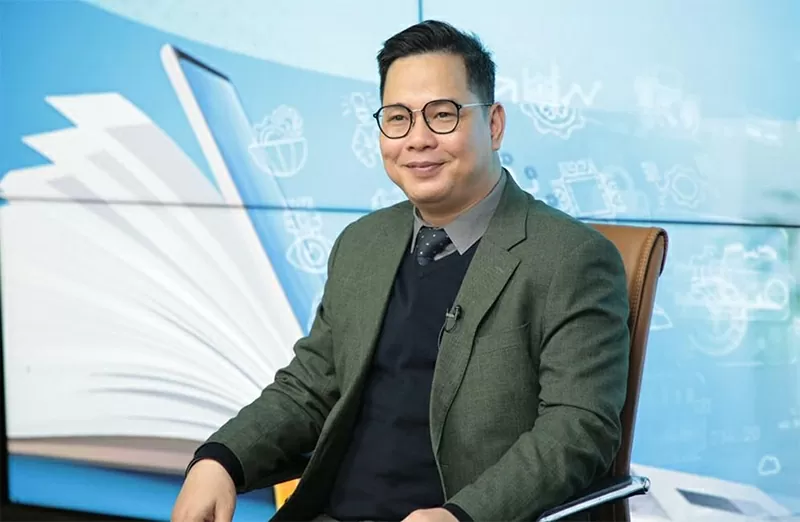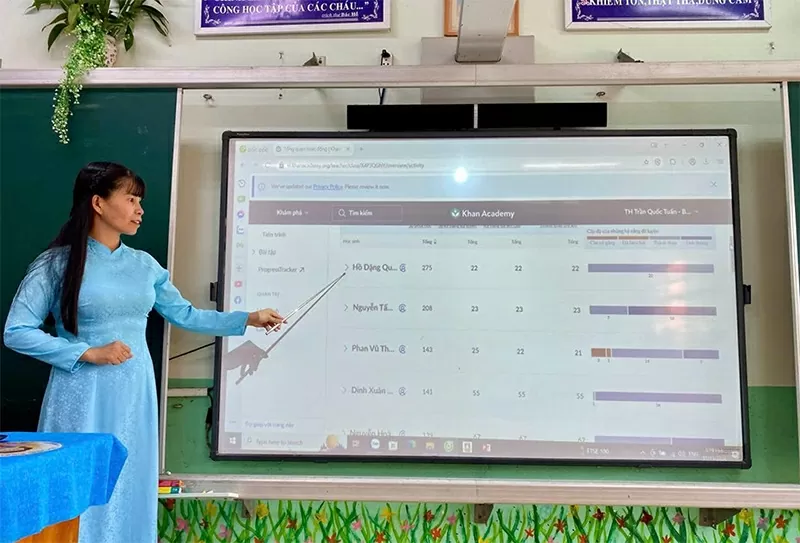
Building ethical foundations for AI in education: Teachers must take the lead
Latest
In a rapidly evolving technological landscape, AI is making significant inroads in education globally and in Vietnam. Associate Professor & Dr. Tran Thanh Nam, Vice Rector of the University of Education, Vietnam National University, Hanoi, notes: “According to a survey conducted by Ford in June 2024, 65% of teachers in Vietnam have started incorporating AI into their teaching. Of these, 55% believe that AI helps improve the quality of instruction and reduces administrative burdens.”
Developing AI competency frameworks for learners
Circular No. 02/2025/TT-BGDDT of the Ministry of Education & Training outlines a national digital competency framework, identifying AI as one of six core competency areas. To nurture AI competency, we must begin in the classroom, with teachers at the helm. In today’s educational environment, teachers are not only instructors but also facilitators of critical thinking and ethical technology use, as well as creating conditions for students to use AI purposefully and responsibly.
Specifically, for learners, AI helps collect and process learning data, thereby personalising educational trajectory and creating an optimal environment to maximise learners' potential. AI can also improve learning outcomes by assessing achievements using many methods and indicators. In addition, AI enhances connections, supports learners in forming a worldview, develops cognitive, social, and emotional skills, and helps to identify, predict, and prevent early crises that affect learners’ mental health. The most positive and noticeable factor for teachers is that AI helps develop expertise and self-analysis, increases work efficiency, and saves time.
Yet, AI in education also presents ethical challenges, including moral concerns about data privacy, protection of student information, potential bias related to gender, race, socio-economic status, or skill levels, and the perpetuation of cultural stereotypes and social prejudices.
“Establishing ethical and legal frameworks for AI in education is crucial to ensuring that this technology is used fairly, responsibly, and humanely,” Dr. Tran Thanh Nam emphasises. “AI is not just a technical tool—it profoundly influences teachers' and learners' thinking, behaviour, and values. As teachers, knowledge about AI ethics is essential. Teachers will be the ones to guide and help students understand the meaning, potential limitations, and illusions of AI.”
 |
| Assoc. Prof. Dr. Tran Thanh Nam expresses his concerns about AI ethics in education. |
The need for responsible and ethical use of AI in education
While the use of AI in education is an inevitable trend, it also brings risks, such as opaque data usage and biased outcomes. “Risk management in AI requires a blend of ethical understanding, close oversight, and responsible educational practices,” says Dr. Tran Thanh Nam. “Teachers play a pivotal role in guiding students toward ethical, creative, and effective use of AI—preparing them to be responsible digital citizens in a digital age.”
UNESCO’s 2024 AI Competency Framework champions a human-centred approach to AI in education, emphasising the enhancement of human capabilities and promoting social justice, sustainability, and human dignity. It aligns with earlier Guidance for Generative AI in Education and Research and the 2021 Recommendation on the Ethics of Artificial Intelligence. These frameworks serve as vital roadmaps for governments developing ethical, inclusive, and sustainable strategies for AI in education.
Some organisations, such as the OECD, the European Union, and countries like the U.S., China, and Australia, have introduced ethical AI guidelines. Yet, according to Teachai’s report for September 2023, only about 7% of global education systems have issued official guidance on generative AI. Few countries have comprehensive ethical policies for AI in education, even though a report by the Centre for Democracy and Technology shows that 81% of parents and 72% of students believe clear guidance is essential for proper AI use in learning.
In Vietnam, universities and educational institutions are starting to define clear strategies to empower teachers as central figures in digital education. British University Vietnam (BUV) has implemented AI usage policies for staff and students. Vietnam National University, Hanoi, is preparing a joint statement on strategy and approach to AI in research and management. It also collaborates with organisations like the Vietnam Institute for Advanced Study in Mathematics (VIASM), Khan Academy, and the Vietnam Association of Faculties-Institutes-Schools-Universities of ICT to host AI forums. At the national level, the School of Law at Vietnam National University is researching to develop ethical principles and guidelines for responsible AI development in Vietnam.
Free AI training courses are becoming increasingly available to help teachers adapt. One notable example is “AI in Education,” a Vietnamese adaptation by Khan Academy Vietnam of the international course “AI for Education” developed by Code.org, Common Sense Education, and aiEDU. The course provides foundational knowledge on ethical and practical AI use in the classroom. It highlights the teacher’s role in guiding students to use AI with responsibility and humanity in the digital era. Dr. Tran Thanh Nam supports the initiative: “In the world of generative AI, especially in managing its risks, teachers must equip themselves with ethical AI knowledge—understanding how it works, recognising hidden risks, and evaluating the fairness of input data.”
 |
| Teachers are actively integrating technology into teaching and learning. |
In alignment with the Ministry of Education and Training’s push for self-studying, AI can be a powerful learning assistant. It allows teachers to guide students in mastering technology and steadily enter the era of national rise with the courage to think, speak, act, take responsibility, and sacrifice for the common good to become a valuable person for society. Mr. Do Ngoc Minh, Co-founder of Khan Academy Vietnam and Director of the Vietnam Open Educational Resources (VOER), explains: “AI can act as a personal tutor, identifying students’ strengths and weaknesses and offering tailored learning paths. Technology connects learners with global knowledge communities, sparks motivation for self-study, and supports lifelong learning.”
| TIN LIÊN QUAN | |
| Korean cosmetics companies lead the global hair loss treatment market | |
| Binh Duong province takes the lead nationwide in online public service | |













